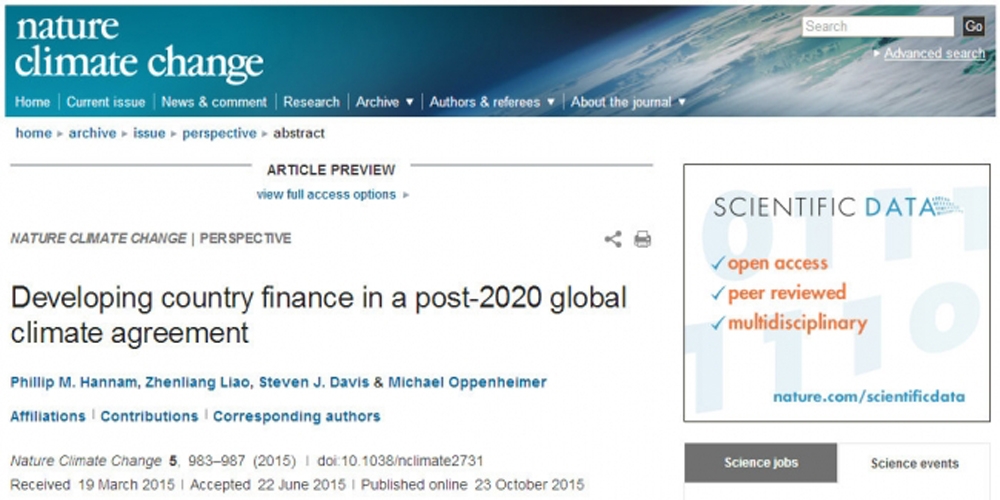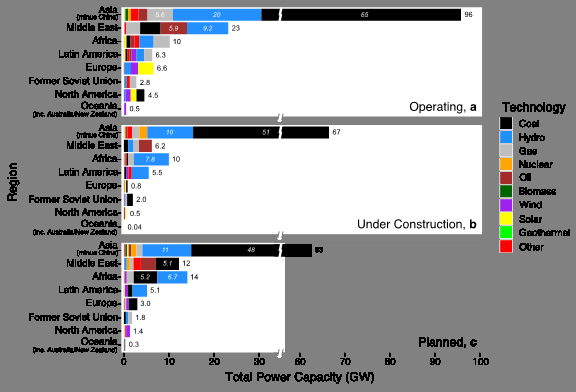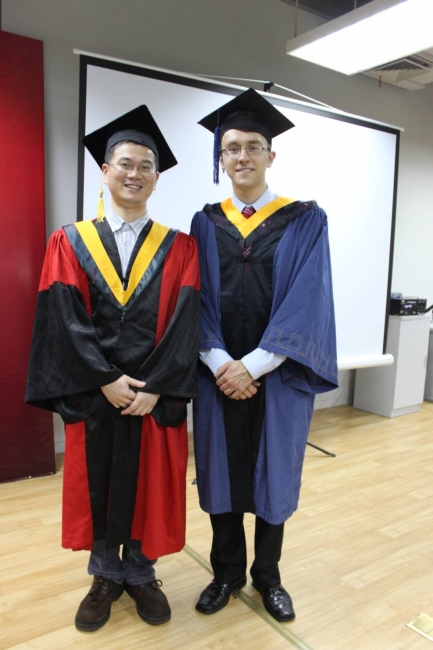On October 23rd,Nature Climate Change(IF=14.547),a subordinate journal ofNature, published online the paper “Developing Country Finance in a Post-2020 Global Climate Agreement” co-authored by Phillip M. Hannam (first and corresponding author), a foreign student of United Nations Environment Program-Tongji Institute of Environment for Sustainable Development (School of Environment Science and Engineering) and his supervisor Liao Zhenliang (second and co-corresponding author), a professor of School of Environment Science and Engineering and the professor responsible for Institute of Environment for Sustainable Development.

For representatives participating in Post-2020 Global Climate Agreement that will be held in Paris, how to build a financial system to support low-carbon development in developing countries is a difficult problem. Phillip M. Hannam pointed out in the paper that nowadays with the increasing investments in the energy sector in developing countries, the climate financial system should integrate the major source of funds and stimulate low-carbon investment as a supplement of developed countries’ commitment to climate finance. The emergence of the Asian Infrastructure Investment Bank, China’s Climate Fund for South-South Cooperation and many other emerging financial institutions revealed a underlying rift in the international financial rules and standards. In this paper, the author sustains that allowing developing countries to earn carbon credits for emission reductions from standard-compliant international investments has three advantages and also believes it should be written up as a general term in the Paris Climate Change Agreement. According to the author the potential advantages would be: 1) encouraging cooperation on low-carbon emissions between developing countries; 2) prompting emerging investors to invest in low-carbon projects first; 3) make the national and global climate goals more cost-efficient. The paper also stresses that the formulated standards should be coordinated with each other, or else it would hold back the low-carbon development in the next few decades.

Phillip M. Hannam won the Chinese Government Scholarship in 2009 and later he was enrolled by Tongji University where he pursued his postgraduate study and obtained his master degree in 2011, before attending the School of International Relations and Public Affairs in Princeton University’s Woodrow Wilson School to study for a doctorate. This paper which Philip M. Hannam and his instructor Liao Zhenliang wrote together, was a development based on his master thesis written during his days in Tongji and was finally published this year. The ingenious ideas contained in this paper are the fruit of their five years long, close cooperation in Tongji University.

Translated by May Language Studio
http://news.tongji.edu.cn/classid-8-newsid-48975-t-show.html